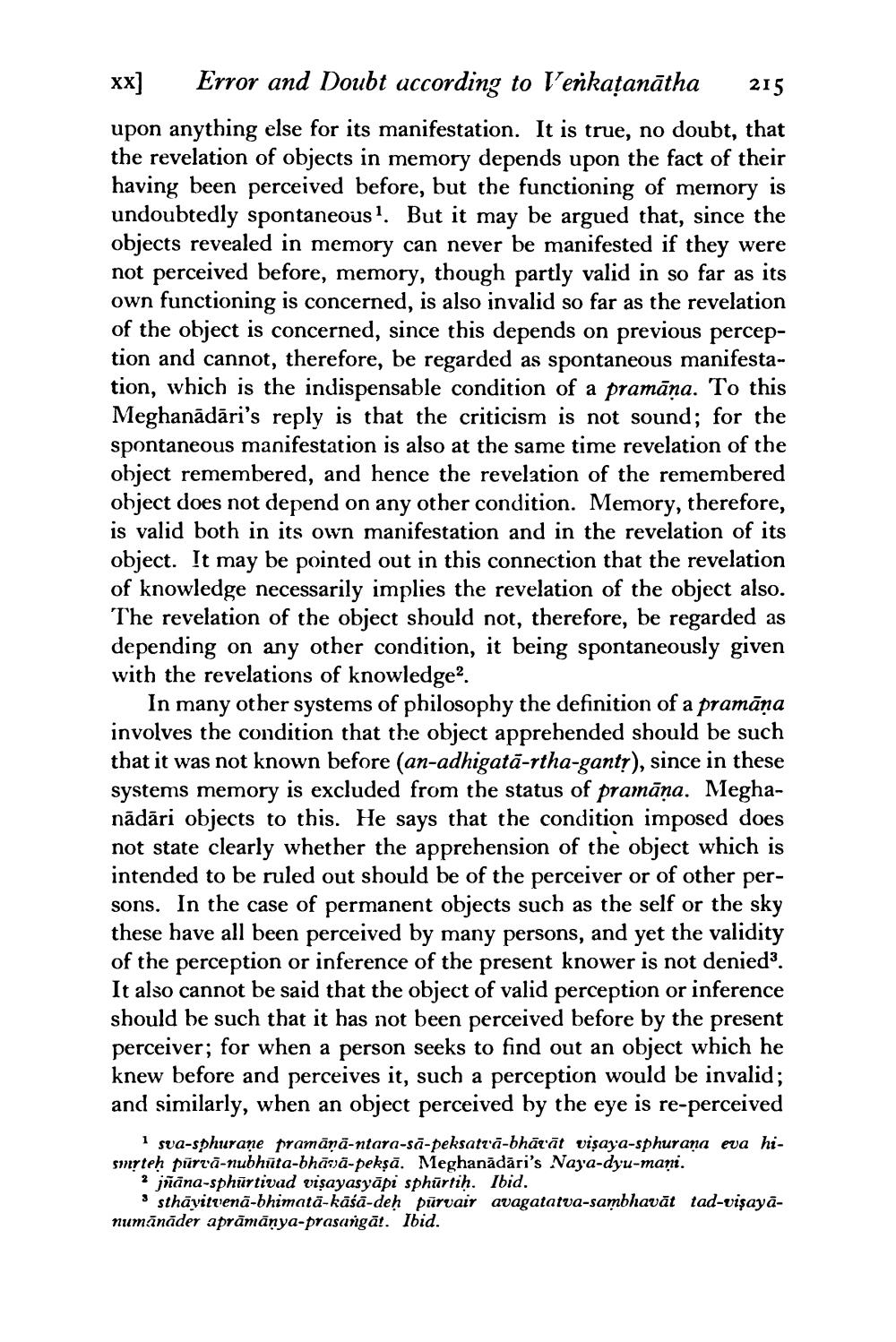________________
xx] Error and Doubt according to l'enkațanātha 215 upon anything else for its manifestation. It is true, no doubt, that the revelation of objects in memory depends upon the fact of their having been perceived before, but the functioning of memory is undoubtedly spontaneous?. But it may be argued that, since the objects revealed in memory can never be manifested if they were not perceived before, memory, though partly valid in so far as its own functioning is concerned, is also invalid so far as the revelation of the object is concerned, since this depends on previous perception and cannot, therefore, be regarded as spontaneous manifestation, which is the indispensable condition of a pramāna. To this Meghanādāri's reply is that the criticism is not sound; for the spontaneous manifestation is also at the same time revelation of the object remembered, and hence the revelation of the remembered object does not depend on any other condition. Memory, therefore, is valid both in its own manifestation and in the revelation of its object. It may be pointed out in this connection that the revelation of knowledge necessarily implies the revelation of the object also. The revelation of the object should not, therefore, be regarded as depending on any other condition, it being spontaneously given with the revelations of knowledge?.
In many other systems of philosophy the definition of a pramāņa involves the condition that the object apprehended should be such that it was not known before (an-adhigatā-rtha-gant;), since in these systems memory is excluded from the status of pramāna. Meghanādāri objects to this. He says that the condition imposed does not state clearly whether the apprehension of the object which is intended to be ruled out should be of the perceiver or of other persons. In the case of permanent objects such as the self or the sky these have all been perceived by many persons, and yet the validity of the perception or inference of the present knower is not denied. It also cannot be said that the object of valid perception or inference should be such that it has not been perceived before by the present perceiver; for when a person seeks to find out an object which he knew before and perceives it, such a perception would be invalid; and similarly, when an object perceived by the eye is re-perceived
sua-sphurane pramāņā-ntara-sa-peksatta-bhārāt visaya-sphurana eva hismrteh pūrva-nubhūta-bhāvā-pekşā. Meghanādāri's Naya-dyu-mani. ? jñāna-sphurtivad visayasyāpi spürtiḥ. Ibid.
sthāvitvenā-bhimatā kāśā-deh pūrvair avagatatva-sambhavāt tad-visayānumānāder aprāmānya-prasangāt. Ibid.




